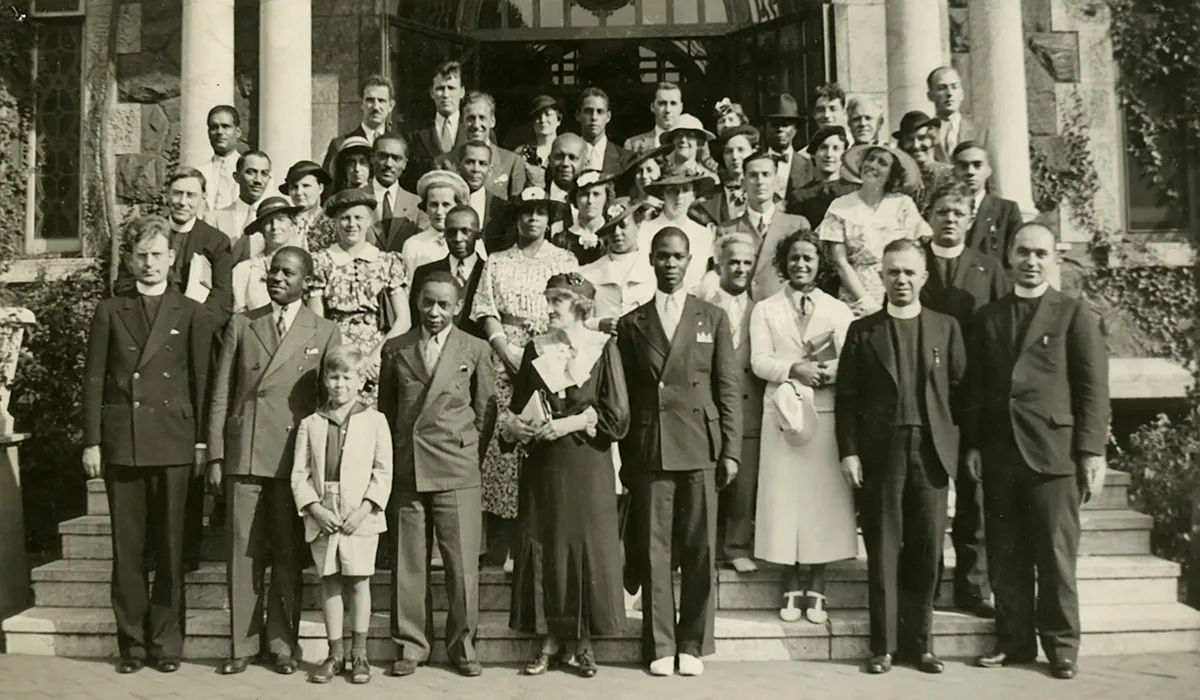Last Thursday marked the one-year anniversary of the January 6th insurrection at the Capitol. Politicians (including members of Congress), media pundits, and faith leaders alike recalled and condemned the violent and chaotic riot intent on overturning the results of the free and fair 2020 presidential election.
However, the silence from the United States Conference of Catholic Bishops and outspoken prelates like its president Archbishop José Gómez, and his fellow Angeleno bishop Robert Barron, was deafening.
I mention Barron and Gómez because both men have been outspoken critics of the racial and social justice movements spurred by the murders of African-Americans like George Floyd, Ahmaud Arbery, and Breonna Taylor.
Barron spent nearly a year making media appearances and writing blog posts decrying “wokeness.” He even went so far as to call the current racial justice movement “vile”. Even so, on his popular Word on Fire site, he stated: “Should the Church and the political establishment be committed to fighting injustice wherever it appears? Of course.”
But what could be more unjust than a country built upon such great social, economic, and political inequality—namely, the United States? As the country continues to diversify, and a mass movement seeks to redress centuries of oppression and racism, the Catholic Church has not committed itself to actively finding solutions to the problem.
Indeed, not only have Barron and Gómez chosen not to speak against the racist ideology that motivated the insurrectionists, but one could also argue their “anti-woke” efforts have directly fueled it.
A nonpartisan survey commissioned in June 2021 by the National Opinion Research Center found that, out of the 21 million people who believe force was justified to restore Trump to the executive office and that Biden is an illegitimate president, 63% agree that “African American people or Hispanic people in our country will eventually have more rights than whites.”
On the Gloria Purvis Podcast, discussing his research conducted on the 700 people arrested for the insurrection, Dr. Robert Pape stated that race was an important driver for their participation. As Purvis explained in her accompanying America Magazine article:
“[Research] revealed that the Jan. 6 rioters came from areas where the white population was in decline and that they believe the “great replacement” theory spread by some pundits. According to this theory, Black people and other people of color are replacing whites and diluting their political strength.”
In “Racial Justice and the Catholic Church”, a book written over a decade ago, Fr. Bryan Massingale explained that the racial justice efforts of most American Catholics are based on a fundamental misunderstanding of racism. Racism's primary manifestation is not racial slurs, intentional acts of ill will, or individual bias and bigotry, as is often thought. Instead, he says:
“Racism is an underlying cultural set of meanings and values, that is, a way of interpreting skin color differences so that white Americans enjoy a privileged social status with access to advantages and benefits to the detriment, disadvantage, and burden of persons of color. Racism, at its core, is a defense of racially based white social privilege.”
While the US Catholic bishops have taught against the personal sin of racism and acknowledged systemic racism, it has yet to properly name and condemn White Supremacy or the idea that America must be a “White Christian nation.” As part of a universal church, Catholic leadership must teach the theological importance of accepting diversity as God's divine will, as seen in Revelation 7:9-10:
After this, I looked, and there was a great multitude that no one could count, from every nation, from all tribes and people and languages, standing before the throne and before the Lamb, robed in white, with palm branches in their hands. They cried out in a loud voice, saying, "Salvation belongs to our God who is seated on the throne, and to the Lamb!"
Instead, similar to how the majority White, male, and “mainstream” insurrectionists see Black people and the “browning” of America as a threat, Archbishop Gómez himself has lamented the modern racial justice movement as a threat.
Much attention and blowback have been given to Gómez' November 2021 speech, “Reflections on the Church and America's New Religions.” In it, he described modern social justice movements as “pseudo-religions, and replacements and rivals to traditional Christian beliefs,” and denounced them as "as dangerous substitutes for true religion.”
More specifically, Gómez disapproved of what he called the racial justice movement's “extremism, and their harsh, uncompromising, and unforgiving approach to politics.”
Ironically, one year out from an unprecedented assault on the federal government, Gómez was completely silent in the face of the extremism, harsh, and uncompromising movement of people that participated in the January 6th insurrection, as well as those who are sympathetic to it.
Neither as an individual, nor as head of the USCCB, did Gómez so much as mention the anniversary of the deadly attempted coup.
The silence of Gómez and Barron is not an innocent oversight. By not forcefully condemning the insurrectionists, their racist ideology, and the “Big Lie,” these powerful bishops allow themselves to be seen as sympathetic to the plight of the growing number of White Americans who will stop at nothing to maintain political, social, and economic power—even if they have to overturn democracy to do it.
Alessandra Harris is author of two novels and is a wife, mother of four, and co-founder of BCM. She has earned degrees in Comparative Religious studies and Middle East Studies and currently studies in the Diocese of San Jose's Institute for Leadership in Ministry. She has also contributed to publications such as America Magazine, Grotto Network, and US Catholic. Her third novel is due in 2022.










